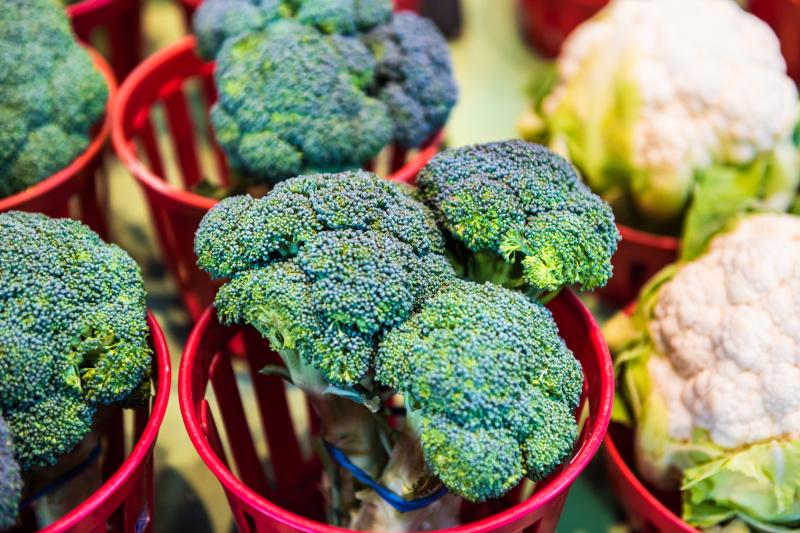 A combination of cruciferous vegetables such as broccoli or cauliflower, that contain probiotics, may have anti-bowel cancer effects.
A combination of cruciferous vegetables such as broccoli or cauliflower, that contain probiotics, may have anti-bowel cancer effects.Replacing fats, carbohydrates or animal protein with vegetable protein may delay unhealthy ageing, a recent study has found.
The study included 1,951 elderly adults (aged ≥65 years) enrolled in the Seniors-ENRICA* cohort, with intake in 2008–2010 (wave 0) and followed up at 2012 (wave 1), 2015 and 2017. Validated diet history questionnaires were used to assess protein intake at waves 0 and 1, while a 52-item health deficit battery was used to measure unhealthy ageing at each wave.
The distribution of animal and vegetable protein intake levels among participants were 12 percent and 6 percent of their total energy intake, respectively. Disaggregation according to source found that meat (5.18 percent) was the most predominant, followed by dairy (3.26 percent), refined grains (2.97 percent) and fish (2.84 percent).
Vegetable protein showed protective effects against unhealthy ageing. Compared with participants who had a decrease in intake levels of >2 percent, those with a same-magnitude increase showed less deficit accumulation over 3.2 years of follow-up (β, –1.05, 95 percent confidence interval [CI], –2.03 to –0.06).
These effects were stable over time and remained significant even after 6 years (β, –1.28, 95 percent CI, –2.51 to –0.03) and 8.2 years (β, –1.68, 95 percent CI, –3.27 to –0.09). These associations were robust to adjustments for change in fats or carbohydrates.
“Replacing total animal protein, dairy protein or meat protein with vegetable protein led to significantly less deficit accumulation over 8.2 years, whereas replacement of egg protein or fish protein did not show a statistically significant association with deficit accumulation,” researchers said.